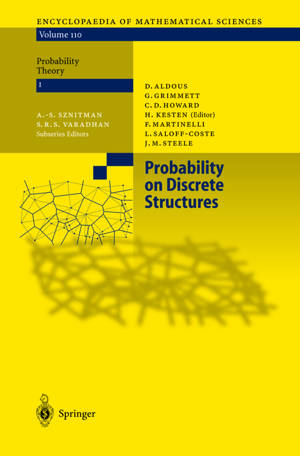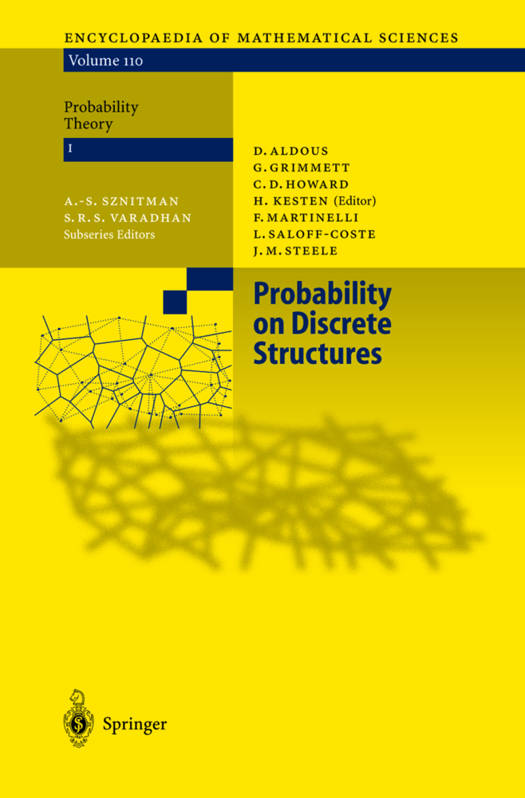
- Afhalen na 1 uur in een winkel met voorraad
- Gratis thuislevering in België vanaf € 30
- Ruim aanbod met 7 miljoen producten
- Afhalen na 1 uur in een winkel met voorraad
- Gratis thuislevering in België vanaf € 30
- Ruim aanbod met 7 miljoen producten
Probability on Discrete Structures
Omschrijving
Most probability problems involve random variables indexed by space and/or time. These problems almost always have a version in which space and/or time are taken to be discrete. This volume deals with areas in which the discrete version is more natural than the continuous one, perhaps even the only one than can be formulated without complicated constructions and machinery.
The 5 papers of this volume discuss problems in which there has been significant progress in the last few years; they are motivated by, or have been developed in parallel with, statistical physics. They include questions about asymptotic shape for stochastic growth models and for random clusters; existence, location and properties of phase transitions; speed of convergence to equilibrium in Markov chains, and in particular for Markov chains based on models with a phase transition; cut-off phenomena for random walks.
The articles can be read independently of each other. Their unifying theme is that of models built on discrete spaces or graphs. Such models are often easy to formulate. Correspondingly, the book requires comparatively little previous knowledge of the machinery of probability.
Specificaties
Betrokkenen
- Uitgeverij:
Inhoud
- Aantal bladzijden:
- 351
- Taal:
- Engels
- Reeks:
- Reeksnummer:
- nr. 110
Eigenschappen
- Productcode (EAN):
- 9783540008453
- Verschijningsdatum:
- 18/09/2003
- Uitvoering:
- Hardcover
- Formaat:
- Genaaid
- Afmetingen:
- 163 mm x 239 mm
- Gewicht:
- 635 g

Alleen bij Standaard Boekhandel
Beoordelingen
We publiceren alleen reviews die voldoen aan de voorwaarden voor reviews. Bekijk onze voorwaarden voor reviews.








